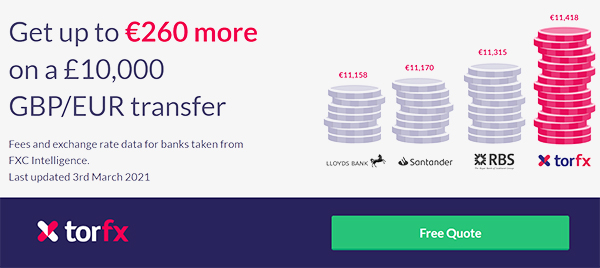GBP EUR Exchange Rate Holds Narrow Trend Ahead of German Inflation Data
December 29, 2017 - Written by David Woodsmith
The Pound Euro exchange rate continued to trend narrowly heading into the weekend, with trading volumes thinning as markets prepared to close for the final time in 2017.
Even after the December European Central Bank (ECB) Economic Bulletin demonstrated a more optimistic tone than expected the appeal of the single currency softened.
While policymakers maintained a confident view of Eurozone economic growth in 2018 the underlying message of the Bulletin still pointed towards a rather dovish policy bias.
As the Bulletin noted:
This suggests that the ECB will leave its quantitative easing program in place for some months to come, to the disappointment of investors.
However, the GBP EUR exchange rate struggled to capitalise on this less hawkish message, with the appeal of the Pound still somewhat limited.
Confidence in the single currency could deteriorate further this afternoon if the German consumer price index data for December disappoints.
With the ECB particularly focusing on the subject of inflation, and its lacklustre growth in recent months, a poor showing here could boost the GBP EUR exchange rate.
Forecasts point towards a slight loss in momentum on the year, with the CPI expected to have dipped from 1.5% to 1.8%, a result which could cement the ECB’s dovish policy outlook.
On the other hand, any improvement in the domestic inflationary outlook may encourage the Euro to return to a stronger footing and end 2017 on a bullish note.
Demand for the Pound was dented on Friday morning by a report from the TUC, which forecast that the UK will see the weakest wage growth of the 32 Organisation for Economic Co-operation and Development (OECD) nations in 2018.
The TUC expects the UK to post more negative wage growth over the course of the year, with businesses unlikely to take a more confident stance in the shadow of Brexit.
Falling real wages are likely to put further pressure on household finances, limiting consumer spending and dragging on wider economic growth as a result.
Even if consumers continue to turn towards a greater reliance on credit this is unlikely to ease the mind of the Bank of England (BoE), which has already expressed concern on the subject.
Unless inflation shows signs of weakening the BoE could be forced to raise interest rates again, something which markets are concerned the UK economy may struggle to handle.
Analysts at TDS expected the BoE to deliver another rate hike in May, commenting:
However, next week’s raft of UK PMIs could offer the GBP EUR exchange rate a rallying point if domestic activity shows fresh signs of improvement.
Particular focus will fall on the services PMI, given that this sector accounts for the majority of UK economic activity, with a stronger showing here likely to boost the Pound sharply.
STORY LINK GBP EUR Exchange Rate Holds Narrow Trend Ahead of German Inflation Data
The Pound Euro exchange rate continued to trend narrowly heading into the weekend, with trading volumes thinning as markets prepared to close for the final time in 2017.
Even after the December European Central Bank (ECB) Economic Bulletin demonstrated a more optimistic tone than expected the appeal of the single currency softened.
While policymakers maintained a confident view of Eurozone economic growth in 2018 the underlying message of the Bulletin still pointed towards a rather dovish policy bias.
As the Bulletin noted:
‘An ample degree of monetary accommodation is still needed to secure a return of inflation towards levels that are below, but close to, 2%.
‘The Governing Council assessed that the strong cyclical momentum and the significant reduction of economic slack give grounds for greater confidence that inflation will converge towards its aim.
‘At the same time, domestic price pressures remain muted overall and have yet to show convincing signs of a sustained upward trend.
‘The Governing Council’s economic assessment reflected that the euro area economic expansion continues to be solid and broad-based across countries and sectors.
‘Financing conditions in the euro area have remained very favourable.
‘Underlying inflation is expected to rise gradually over the medium term, supported by the ECB’s monetary policy measures, the continuing economic expansion, the corresponding absorption of economic slack and rising wage growth.’
This suggests that the ECB will leave its quantitative easing program in place for some months to come, to the disappointment of investors.
However, the GBP EUR exchange rate struggled to capitalise on this less hawkish message, with the appeal of the Pound still somewhat limited.
Weaker German Inflation Forecast to Boost GBP EUR Exchange Rate
Confidence in the single currency could deteriorate further this afternoon if the German consumer price index data for December disappoints.
With the ECB particularly focusing on the subject of inflation, and its lacklustre growth in recent months, a poor showing here could boost the GBP EUR exchange rate.
Forecasts point towards a slight loss in momentum on the year, with the CPI expected to have dipped from 1.5% to 1.8%, a result which could cement the ECB’s dovish policy outlook.
On the other hand, any improvement in the domestic inflationary outlook may encourage the Euro to return to a stronger footing and end 2017 on a bullish note.
GBP Exchange Rates Soften as TUC Forecasts Weak UK Wage Growth in 2018
Demand for the Pound was dented on Friday morning by a report from the TUC, which forecast that the UK will see the weakest wage growth of the 32 Organisation for Economic Co-operation and Development (OECD) nations in 2018.
The TUC expects the UK to post more negative wage growth over the course of the year, with businesses unlikely to take a more confident stance in the shadow of Brexit.
Falling real wages are likely to put further pressure on household finances, limiting consumer spending and dragging on wider economic growth as a result.
Even if consumers continue to turn towards a greater reliance on credit this is unlikely to ease the mind of the Bank of England (BoE), which has already expressed concern on the subject.
Unless inflation shows signs of weakening the BoE could be forced to raise interest rates again, something which markets are concerned the UK economy may struggle to handle.
Analysts at TDS expected the BoE to deliver another rate hike in May, commenting:
‘Beyond that, the MPC is likely to continue on a very slow hike path, pausing for one year as Brexit negotiations hit the home stretch. We expect two hikes in 2019. Our forecast is conditioned on continued slow pass-through from the weaker currency to inflation, lower trend supply growth amid decent demand growth, a labour market operating near capacity resulting in wage gains, and a transitional Brexit deal agreed in Q1 that helps lift some uncertainty on households and firms.’
However, next week’s raft of UK PMIs could offer the GBP EUR exchange rate a rallying point if domestic activity shows fresh signs of improvement.
Particular focus will fall on the services PMI, given that this sector accounts for the majority of UK economic activity, with a stronger showing here likely to boost the Pound sharply.
International Money Transfer? Ask our resident FX expert a money transfer question or try John's new, free, no-obligation personal service! ,where he helps every step of the way, ensuring you get the best exchange rates on your currency requirements.
TAGS: Pound Euro Forecasts
Comments are currrently disabled
Related Stories:
- Pound to Euro Forecast For Week Ahead: Where Next for GBP/EUR? - April 28, 2024
- Pound to Euro: Back Above 1.1625, Short-Term Stabilisation Ahead - April 24, 2024
- Pound to Euro Week Ahead Forecast: 1.1240-1.2050 12-Month Ranges - April 21, 2024
- Pound to Euro Nears 1.1720 After Mixed UK Jobs Data - April 16, 2024
- Pound to Euro Week Ahead Forecast: Retreat to 1.17, Fundamental Debate Continues - April 14, 2024
- Pound to Euro Rate Outlook: Lagarde to "pre-announce" June rate cut - April 11, 2024
- Pound to Euro Week Ahead Forecast: 1.156-1.19 Range This Year - April 7, 2024
- Pound to Euro Exchange Rate Close to One-Week Lows as UK/Euro-Zone Performance Gap Narrows - April 5, 2024
- Pound to Euro Rate Edges Above 1.1700 - GBP/EUR Forecast - April 2, 2024
Latest News:
- Pound Sterling Below 1.25 as Dollar Dominates Ahead of Fed Policy Decision - May 1, 2024
- Pound to Dollar Rate Outlook: "Risks are Biased Towards U.S. Dollar Losses" - April 30, 2024
- Pound to Euro Forecast For Week Ahead: Where Next for GBP/EUR? - April 28, 2024
- Pound to Dollar Week Ahead Forecast: "Further GBP Weakness in Coming Weeks" - April 28, 2024
- Euro to Dollar Exchange Rate Forecast Lowered to 1.05 at Goldman Sachs - April 28, 2024
- US Dollar Outlook: Fed 2024 interest rate cut "starting to look increasingly more out of reach" - April 26, 2024
- Sterling Recovery Continues, Pound to Dollar Rate Above 1.25 - April 25, 2024
- Pound to Euro: Back Above 1.1625, Short-Term Stabilisation Ahead - April 24, 2024
- Pound Sterling Rebounds After UK and US PMI Data Jolts Expectations - April 24, 2024
- Pound to Dollar Rate Secures Net Gain to 1.2370 - April 23, 2024









